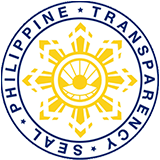With its aim of establishing a transparent and facilitative partnership with participating Higher Education Institutions (HEIs) across the region in relation to the implementation of the Tertiary Education Subsidy (TES) and Tulong Dunong Program – Tertiary Education Subsidy (TDP-TES), the Commission on Higher Education Regional Office 2 (CHED RO2), through the Unified Student Financial Assistance System for Tertiary Education Unit (UniFAST Unit), held a Coordinative Meeting and Workshop on April 26, 2023 at the Twins Events Hall, Pulsar Hotel Premier Suites, Buntun, Tuguegarao City, Cagayan.
Finance Officers and Focal Persons of participating HEIs in the region attended and actively participated during the discussion on the latest disbursal updates of TES, TDP-TES, and TES-3A funds, and comprehensive walkthrough of the various liquidation requirements and documents.
Atty. Marco Cicero F. Domingo, CHED RO2’s OIC-Regional Director, welcomed all the participants and underscored their valuable cooperation attainment of shared goals and unwavering commitment to the intentions of TES and TDP-TES programs. “To the participants, it is our honor to work with you in fulfilling our shared goals – to deliver the genuine intentions of the TES and TDP programs and to ensure that underprivileged, but deserving Filipinos are able to have an access to quality and equitable higher education”, Atty. Domingo conveyed.
The endeavor concluded with the sharing of best practices by Batanes State College (BSC) represented by Ms. Rhea Angelica B. Addatu, BSC’s Accountant, Mallig Plains College (MPC) represented by Ms. Imelda S. Quiña, MPC’s TES/TDP Focal Person, and Isabela State University (ISU) represented by Engr. Edmund Obiña, ISU’s Director for Student Affairs and Services, relating to the implementation of TES and TDP-TES programs, and fulfillment of liquidation requirements as requisite in the expedient processing and release of funds.
The sharing of best practices by select participating HEIs is part of CHED RO2’s initiative to fill knowledge gaps and create a community that enables the exchange of and adoption of relevant ideas, practices, and systems.

















